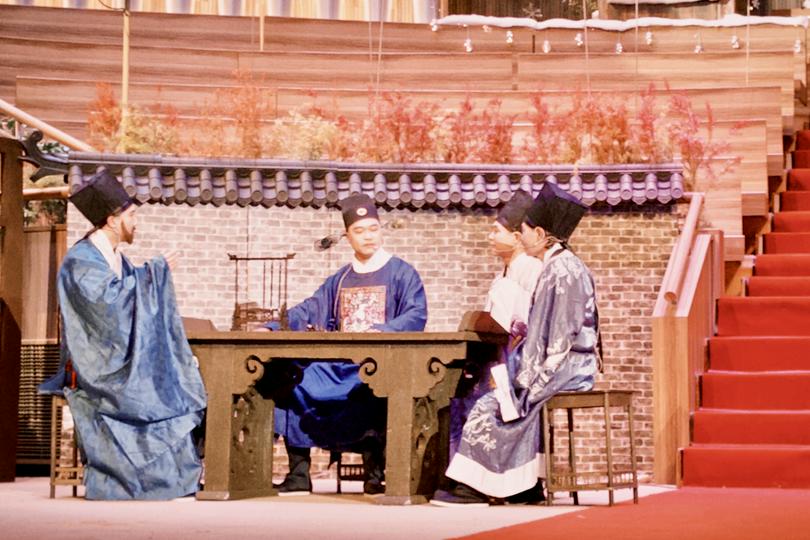On the evening of December 24, Liushi Church in Wenzhou City, known as "China’s Jerusalem," hosted a Christmas Eve celebration featuring the sacred drama “Matteo Ricci's Mission to the Ming Dynasty.” The performance depicted the intertwining of faith and culture, recounting the gospel message of Jesus Christ's birth and the arrival of truth in the world as it was brought to China for the third time by the missionary Matteo Ricci and his companions.
The sacred drama “Matteo Ricci's Mission to the Ming Dynasty” is presented in three acts: “The Conflict Between Faith and Custom,” “The Perilous Journey to the Capital,” and “Embarking on the Path to Revival.” It delivered the story of Matteo Ricci, a Jesuit missionary, who introduced the gospel to China during the Ming Dynasty.
Drawing from historical records, the drama portrays Matteo Ricci's interactions with scholars and officials, engaging in discussions and debates on topics such as the Only True God as a factual assertion rather than a domineering claim and the distinctiveness of the Christian God compared to the deities in other nations' creation myths. It also highlights his experiences with cultural misunderstandings, including conflicts arising from the local temple custom of hosting banquets in Guangdong and Jiangxi provinces, which he resolved with patience and tolerance. Additionally, it recounts his struggles against opposition from the influential eunuch Ma Tang, his six-month imprisonment, and his eventual release, allowing him to head to the capital and seek an audience with the emperor.
Songs and dances were integrated into the plot. In moments of conflict with the locals, Matteo Ricci showed his determination to follow God's will despite the challenges as his friends comforted him. This was followed by the sign language group's performance of the dance “I Will Obey.” Later, when confronting hardships imposed by local officials, Ricci encouraged his companions to maintain spiritual vision and recognize the path God had prepared. In response, a group of Christian women, dressed in blue ancient skirts and holding lamps, danced “Vision.”
Finally, Matteo Ricci saw the dawn of hope as he was granted the chance to travel to the capital and seek an audience with the emperor. The play portrayed the group’s arrival in the capital, capturing the grandeur of various envoys gathered at the imperial city. The drama concluded on a note of anticipation, with an electric band and dancers in costumes representing different nations and ethnicities taking the stage to perform “Glory.” This finale symbolized the praises to Jesus Christ offered by all nations and peoples.
Rev. Zheng Nada delivered a sermon titled “The Word of God Enters the World: Blending of East and West,” highlighting that Matteo Ricci’s journey to the Ming Dynasty was driven by the love of Jesus, who forgave and bore the sins of humanity. Meanwhile, this journey also exemplified the inclusiveness of Christian faith and culture. Rev. Zheng hoped that the same love that motivated Ricci would inspire believers today to bring joy and grace to those around them.
- Edited by Karen Luo, translated by Poppy Chan












